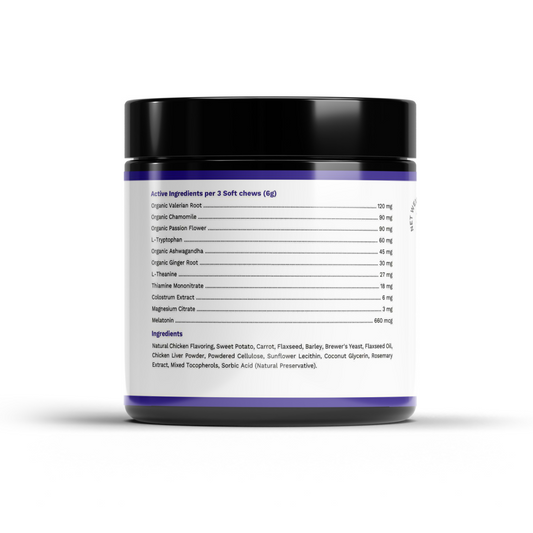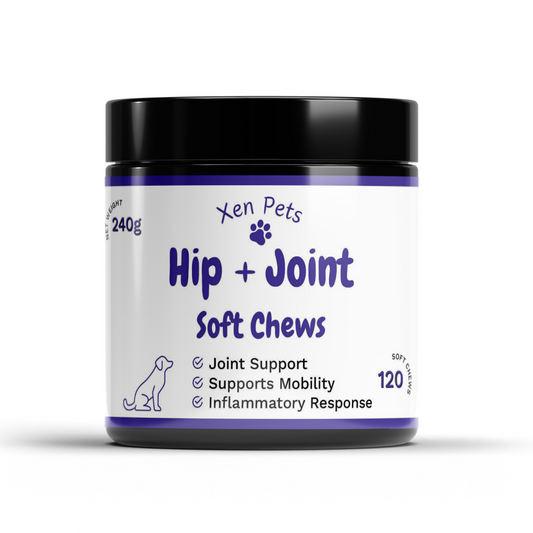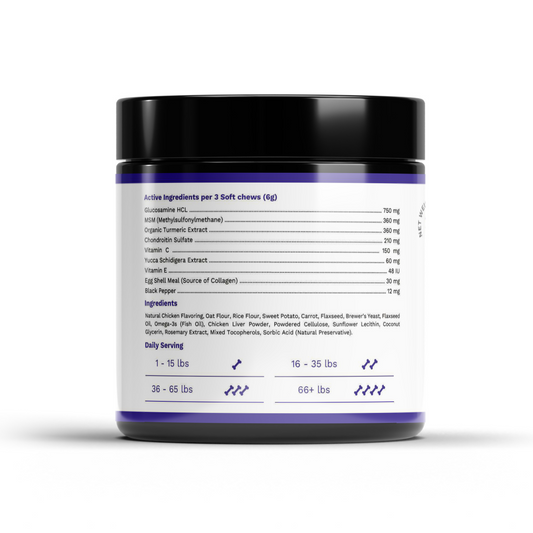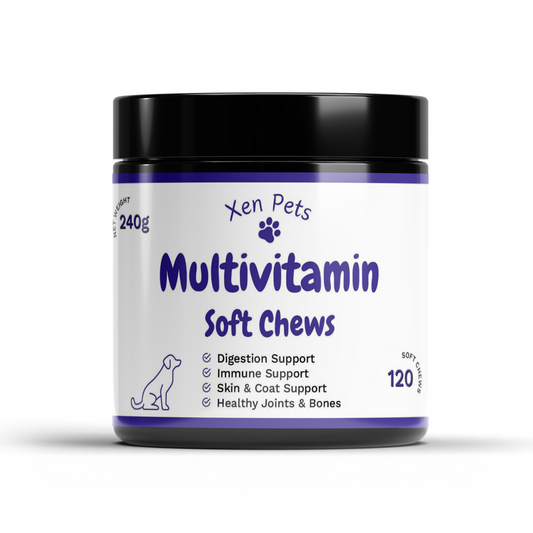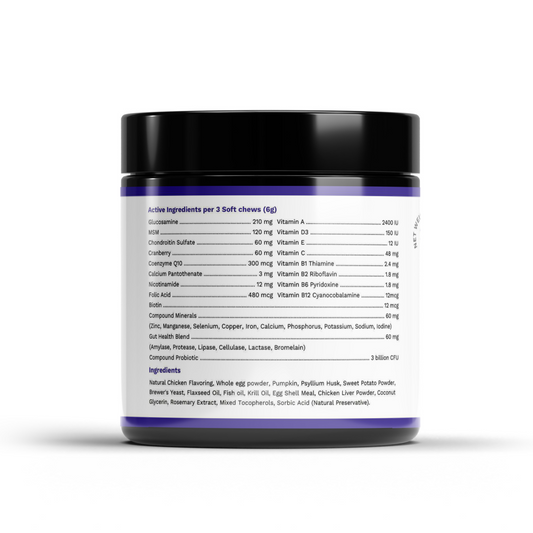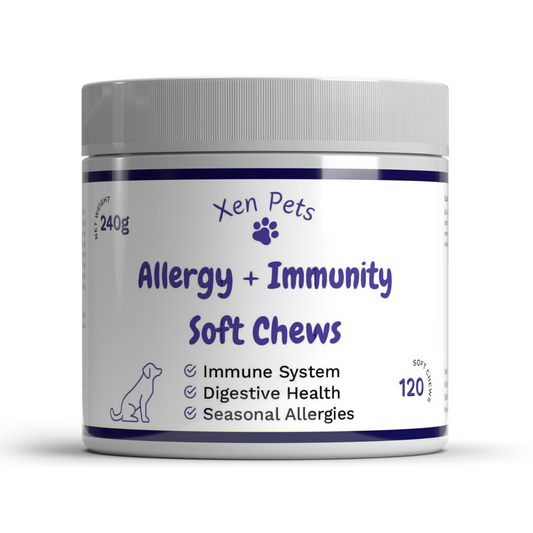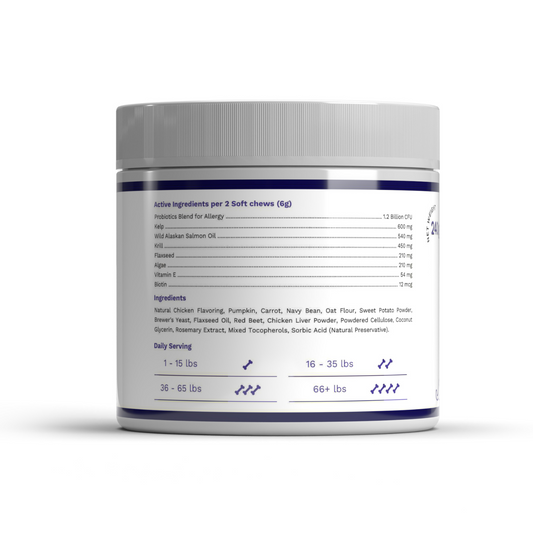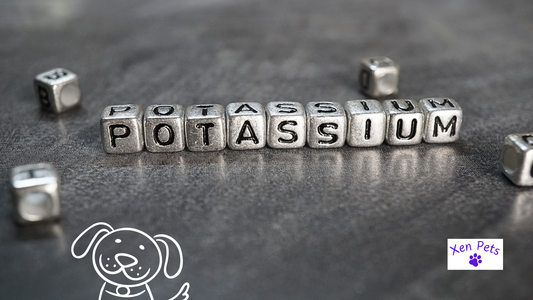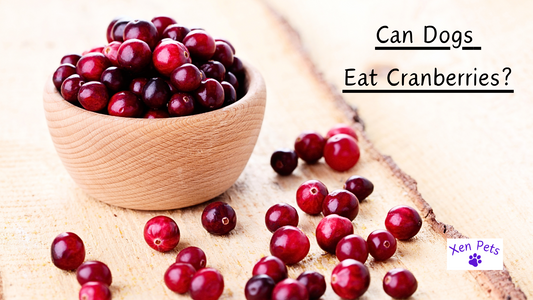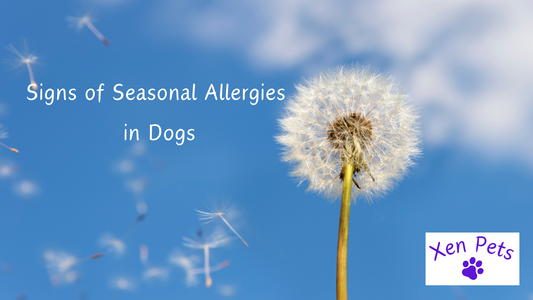Potassium for Dogs: 6 Food Sources, Functions, & More
Tory JohnsonShare
Potassium, an essential mineral, plays an important role ensuring your dog is operating at their best.
From aiding muscle function to balancing fluids, the importance of potassium in your pup's diet can't be overstated.
In this introduction, we'll explore why ensuring your dog receives the right amount of this vital nutrient is fundamental to their well being.
Functions
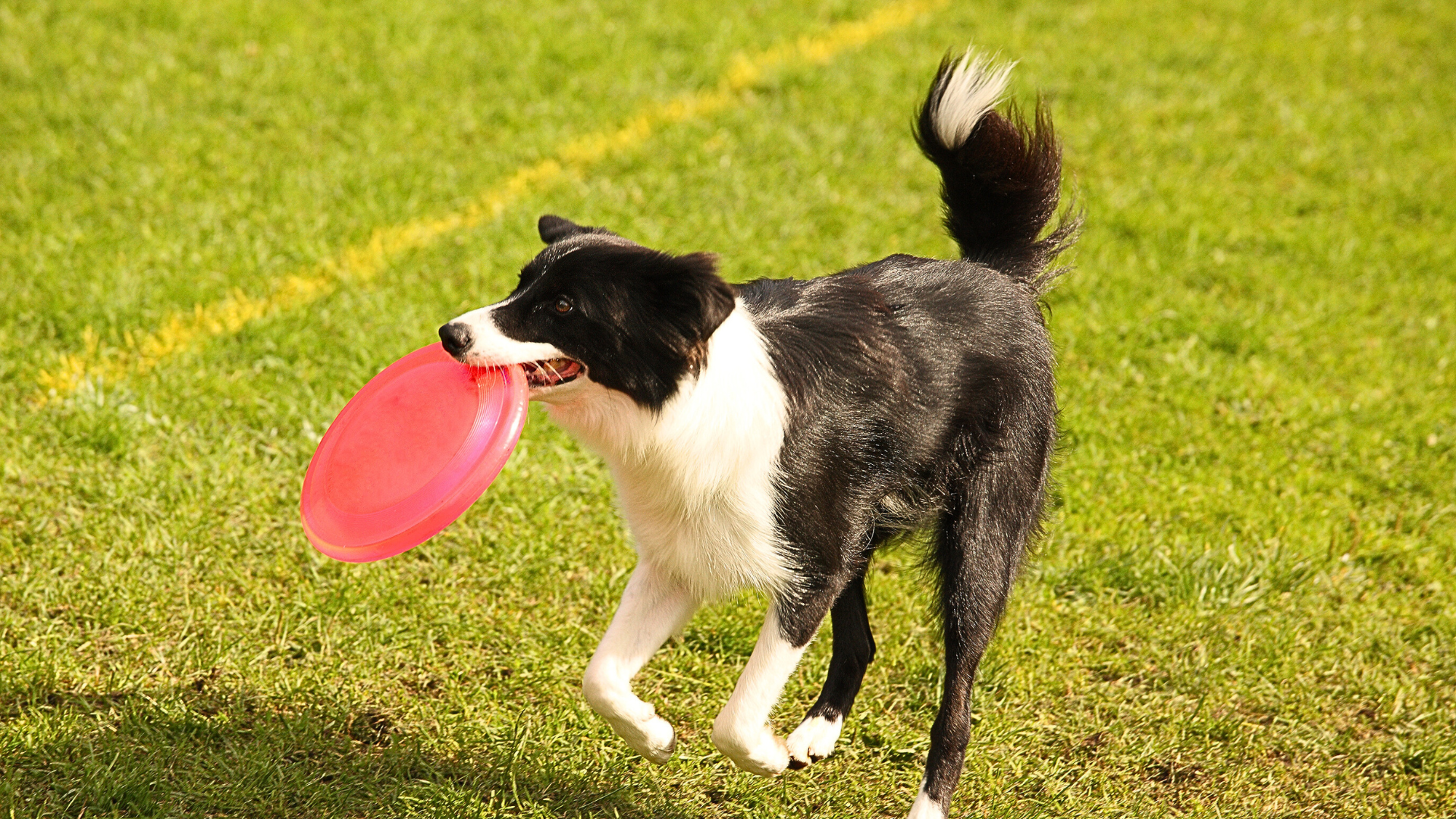
Potassium serves as a crucial electrolyte in dogs, playing multiple roles within their bodies.
It works with sodium to preserve the balance of fluids and to safeguard against dehydration, managing the fluid transfer into and out of cells while also maintaining the PH balance in the bloodstream.
Lacking potassium, your dog would lose the ability to move, as it is essential for the transmission of nerve signals as well as both deliberate and reflexive muscle movements.
In essence, potassium is vital for sustaining regular cardiac rhythms.
Food Sources
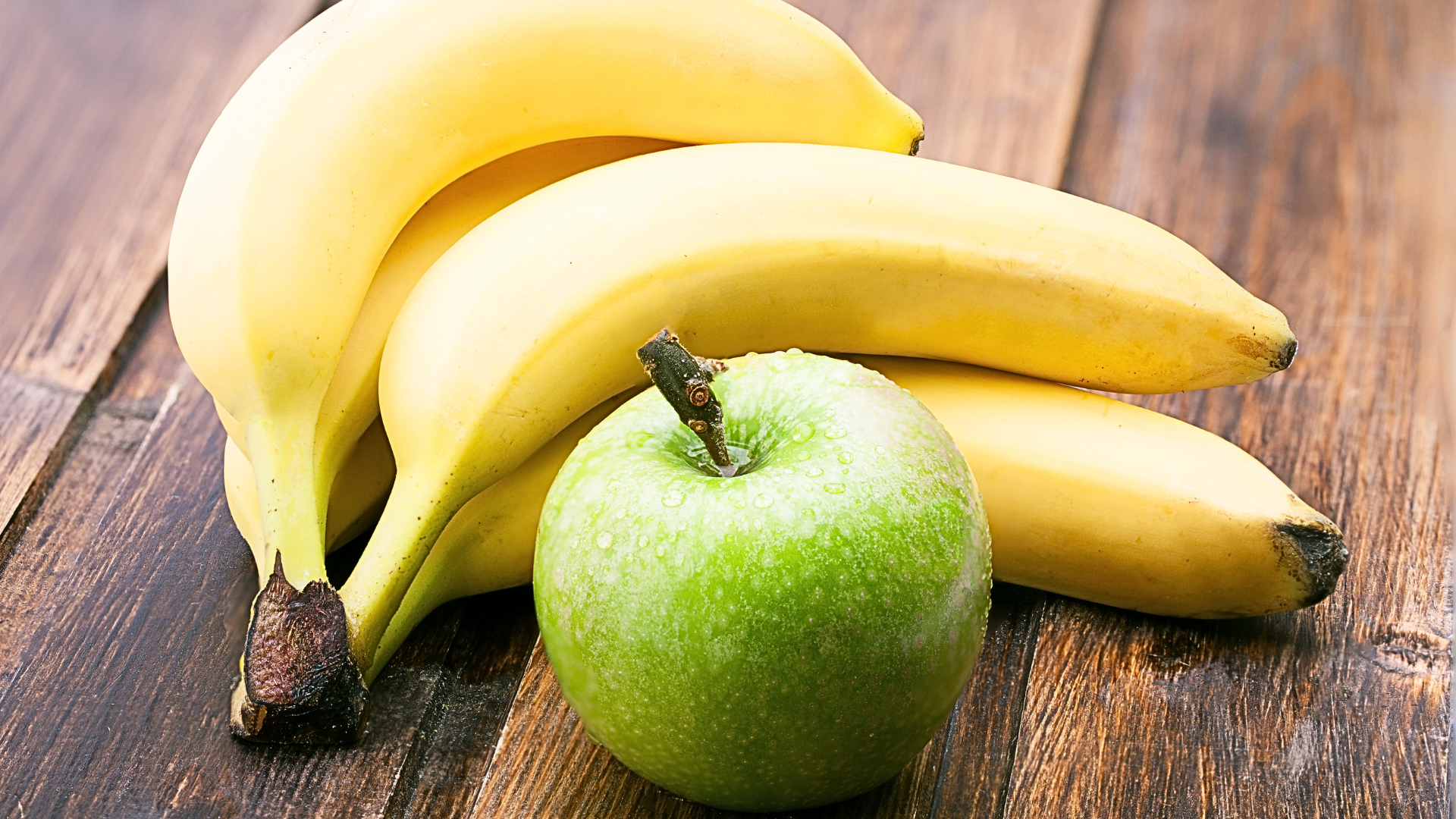
Potassium can be found in a variety of healthy foods that can be included in your dog's diet.
Nutrient packed salmon is a fantastic source of potassium and essential fatty acids that support overall health.
Fruits like bananas and apples, when given in moderation, can be a sweet treat offering not just potassium but also other vitamins and fiber.
Root vegetables such as white potatoes and sweet potatoes are also rich in potassium, but it's important to serve them cooked and in moderation to prevent any digestive upset.
For those dogs who fancy seafood, clams are an excellent provider of this vital mineral.
Green leafy vegetables like spinach and colorful squash are other beneficial, potassium-rich foods that can support your dog's wellbeing.
Always consult with a veterinarian before introducing new foods into your dog's diet to ensure they meet your pet's specific health requirements.
6 Sources
- Bananas
- Apples
- Spinach
- Squash
- White potatoes
- Sweet potatoes
Daily Recommended Amount
Healthy adult dog food, when devoid of moisture (dry dog food), should comprise at least 0.6% potassium.
Dogs who enjoy a high-energy lifestyle often require an increased amount of potassium to meet the needs of their vigorous activities.
The specific necessities for each dog vary, influenced by various elements such as the breed, their stage in life, and their overall size.
Signs of Potassium Deficiency in Dogs

Severe hypokalemia is a condition where dogs don't have enough potassium in their blood. It can make them very sick. Watch for signs like:
- Loose stools
- Hard time breathing
- Going pee a lot
- Being really thirsty
- Not feeling like eating
- Acting tired and uninterested
- Sore muscles
- Feeling weak
- Feeling sick to their stomach
There are several reasons dogs might have low potassium levels. Kidney issues, like ongoing kidney disease or needing dialysis, might make their bodies get rid of too much potassium.
Also, diuretics, which are medicines that make dogs pee more, can lead to hypokalemia.
Other medications, like some types of antibiotics, sugar, and insulin, can also lower potassium levels.
If dogs don't absorb nutrients well, don't eat right, or throw up a lot and have diarrhea, they can end up with not enough potassium over time.
Potassium Supplementation
Administering potassium supplements can benefit dogs prone to insufficient potassium levels, potentially enhancing muscle strength, reflexes, and growth.
It may also support bone health in aging dogs, reducing the risk of fractures linked to osteoporosis.
However, dogs that are already on a balanced diet unlikely gain significant benefits, as their bodies will naturally eliminate the excess potassium.
Consultation with a veterinarian is important before beginning any supplementation to ensure it's suitable for your dog's health needs.


